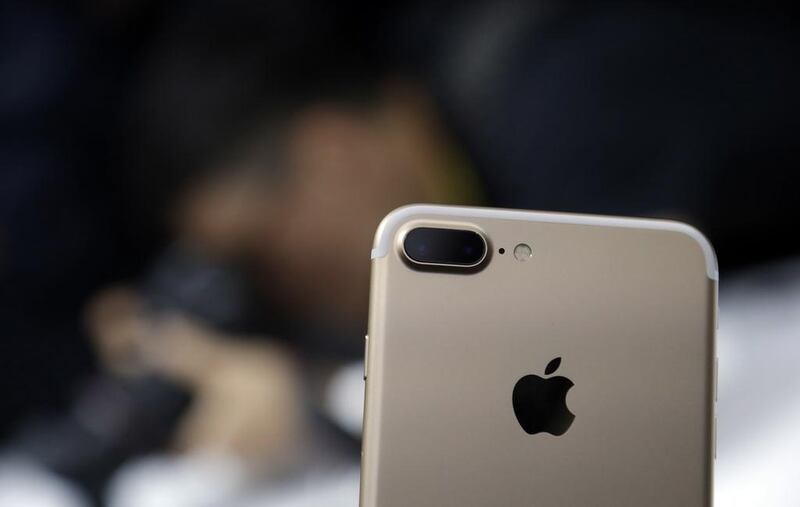Warren Buffett, probably the world's most famous investor, doesn't normally talk about his share-trading activities. However, over the weekend he abandoned his reticence to reveal that he "doubled down" on Apple to become the iPhone maker's fifth-largest shareholder with a holding worth US$18 billion, about $8bn of it for his personal account, the rest in the portfolios of his investment company, Berkshire Hathaway.
That is twice the holding he declared just a few months ago. But he won’t be buying any more. In a wonderful interview on CNBC, the shrewd old sage from Omaha said the strong market performance since means “it’s at a price different than I would buy it now”. For a man who has steered clear of the big tech stocks, basically on the grounds that “I don’t understand them”, his timing has been impeccable. He went into the market shortly before Apple announced some unexpectedly good fourth-quarter results, showing a revival in iPhone sales, resulting in its shares surging by 12 per cent.
If he’d bought earlier in the year, he’d have done better still – Apple shares have risen by more than 40 per cent in the past 12 months, adding about $200bn to its market value, which now stands at an astonishing $718bn, the largest company in the history of stock markets.
If he had bought earlier in the year, he would have done better still – Apple shares have risen by more than 40 per cent in the past 12 months, bringing its market value to an astonishing $718bn, the largest company in the history of stock markets.
Mr Buffett’s Apple coup distracted from his role in the ill-judged attempt by Kraft Heinz, in which he is effectively the joint owner along with Brazil’s 3G, to take over Unilever. Mr Buffett doesn’t get many things wrong but this one was a whopper. On February 15, Kraft Heinz unveiled a $143bn bid for the Anglo-Dutch giant and two days later, after barely a fight, withdrew it, the most humiliating defeat for a bidder I can remember.
Unilever, possibly one of the most admired companies in the world today, rushed into immediate defensive mode, mustering support from every source, including the governments of the UK and the Netherlands, where it is a treasured institution. The competition authorities in the European Union stood ready to intervene, as indeed did their counterparts in many of the other 120 countries where Unilever does business. Unilever likes to think of itself as a model employer, and long-term investor in the future, which is not necessarily the best formula for short-term profit growth. But it certainly endears it to the communities in which it operates. Kraft Heinz, by contrast, has a reputation for savage cost-cutting, mass redundancies, closures of factories and the abandonment of whole research programmes.
Guess who was going to win that one in a public shoot-out.
In the event, Unilever didn’t need any help. A simple letter from Paul Polman, Unilever’s chief executive, to Mr Buffett explaining his hostility to the deal did the trick. An appalled Mr Buffett, who doesn’t get involved in hostile bids, instantly called the deal off, leaving a puzzled City and financial press wondering how Kraft Heinz got it so wrong in the first place. The sage has since enlightened us all – it was all down to a “cultural misunderstanding”, he says. Kraft Heinz’s Alexandre Behring, who is from Brazil and whose first language is not English, went to see Mr Polman in his office in London, outlined his bid intentions, misread the response he received, reported back to Mr Buffett that Unilever was “neutral”, and launched his offer.
‘You’re dealing with different kinds of cultures,” Mr Buffett said. “Some people are more polite than others, so Alex took it as being a maybe. But it became very apparent that Unilever did not want this offer.”
In its first public remark since the offer, Unilever admitted on Friday that the bid has been a “trigger” for it to work harder and faster on delivering better returns to investors. Graeme Pitkethly, Unilever’s finance director, told a conference in Florida: “It showed us the challenge to unlock value quicker in the shorter term”.
That could mean Unilever does to itself what Kraft planned for it, and break itself up, floating off its low-margin food business as a separate company and selling off other low-performing assets, in much the same way BAT did after Jimmy Goldsmith tried to take it over in the 1990s.
Mr Buffett has inadvertently done Unilever shareholders a favour, in the same way as his public announcement of his Apple shares has sent them to a new peak.
The question now across the industry is where does Kraft strike next? In the past few days, companies as big as PepsiCo, Colgate-Palmolive, Danone and Mondelez have all felt the need to reiterate their determination to stay independent, and have polished up their defences.
But industry specialists are now forecasting another bout of defensive mergers – maybe even involving parts of Unilever. “Cultural differences” notwithstanding, Kraft has certainly started something.
Ivan Fallon is a former business editor of The Sunday Times.
business@thenational.ae
Follow The National's Business section on Twitter





